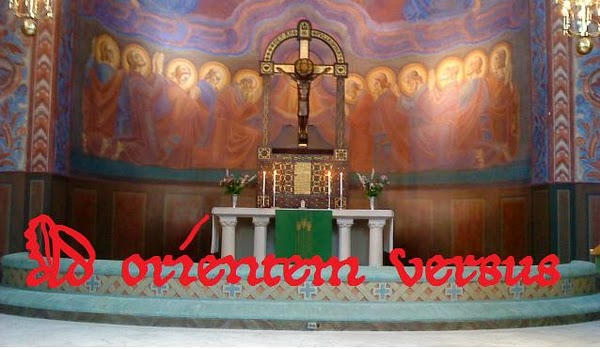
THE GOSPEL. Luther nailed his theses on the church door to challenge the practice of selling indulgences. In effect, people were told to give their money to the church, whereupon they would get to go straight to eternal happiness in Heaven. Today, in many Protestant churches, people are being told to give their money to the church, whereupon they are told that they will get health, wealth, and temporal happiness in this world. But the Prosperity Gospel is not the Gospel!
Neither is the Social Gospel of the liberal mainline Protestants, which construe the Kingdom of Heaven as an earthly utopia. Neither is the Social Gospel of many conservative churches, which construe the Kingdom of Heaven as an American civil religion.
In sophisticated theological circles, both of mainline Protestants and among a surprising number of evangelicals, the Gospel has to do with inclusion, of being accepted into the church community. The “New Perspective on Paul” says that the Apostle did not teach justification by grace through faith apart from the Law, as Protestants used to all agree. Rather, by “Law,” he just meant the setting aside of the Judaic ceremonial law. He was concerned with inclusiveness, of allowing Gentiles to become full members of the church alongside of Jews. Not salvation from the guilt and sin that comes from violating the moral law. Similarly, the business of the church today should be including everybody, not proclaiming a supernatural salvation grounded in redemption from sin.
The actual Gospel is the good news that Jesus Christ has, through His life, death, and resurrection, atoned for the sins of the world. The Protestantism that has drifted away from this Gospel is in need of Reformation.
THE BIBLE. Medieval Catholicism did believe in the Bible. They just didn’t use it much. Today’s mainline Protestants don’t believe in it at all. Many conservative Protestants believe in it–acknowledging its authority, inerrancy and all–but they have stopped reading it in their services and their sermons sometimes have not a shred of Scripture in them. Instead, the preaching is about self-help, pop psychology, politics, or generic inspiration. Sometimes the message is “believe in yourself” or even “have faith in yourself.”
The Reformers taught that the Word of God is not only authoritative, but a means of Grace. They preached the Law, to bring their listeners to repentance, and then they proclaimed the Gospel of free forgiveness in Christ. In the words of Walther, they preached faith into their listeners’ hearts.
The Protestantism that has drifted away from the Word of God is in need of Reformation.
VOCATION. Medieval Catholicism believed that the highest holiness required rejecting marriage, economic labor, and participation in the state. Instead, they required their clergy to take vows of celibacy, poverty, and obedience to church authorities (to whose laws they were subject instead of the laws of the land). The Reformation taught that God calls all Christians to love and serve their neighbors in the vocations of the family, the workplace, the state, and the church. God Himself is present in vocations. Vocation was the Reformation doctrine of the Christian life.
Today, many Protestants are torn between a hyperspirituality that denies the significance of earthly life and a hypermaterialism. They do not know how to express their faith in their vocation as citizens. In their work, they either try to formulate a distinctly Christian way of exercising their professions, or they consider their work to be nothing more than a way to keep themselves alive and prosperous until they can go to church and engage in “church work” through the week. Meanwhile, the Christian family is at risk, as the divorce rate is as bad or even somewhat worse than that for unbelievers, a clear sign that Protestants have forgotten the vocation of the family.
The doctrine of Vocation solves the Christian’s problems of cultural engagement, political involvement, and being “in, but not of” the world. It does so by affirming the spiritual significance of the “secular” order while preventing the Church from being secularized.
The Protestantism that has drifted away from Vocation is in need of Reformation.



Inga kommentarer:
Skicka en kommentar